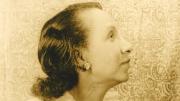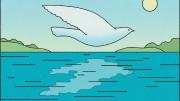- This assessment appears in Geoffrey Ward's Before the Trumpet (Harper
& Row, 1984), an invaluable source of material for this article. Other
good accounts of Roosevelt's youth include Franklin D. Roosevelt: The
Apprenticeship (Little, Brown, 1952), by the late Frank Freidel, and
Kenneth S. Davis's FDR: The Beckoning of Destiny (Putnam, 1971).
Broader in scope, but easy reading, is Collier and Horowitz's The Roosevelts:
An American Saga (Simon & Schuster, 1994), which traces the contrapuntal
relationship of the Hyde Park and Oyster Bay branches of the Roosevelt family.
- Frank had been tagged with mean nicknames before. The acerbic Alice Roosevelt
Longworth, TR's eldest child, recalled that young wags in the Oyster Bay
clan referred to their cousin F.D. as "Feather Duster," "the
handkerchief-box young man" (because he resembled the prettified boys
portrayed on such boxes), and "Miss Nancy" (because he "pranced
around and fluttered" on the tennis court). When he became an officer
of the Crimson, an in-house poster introduced him as "Rosey Rosenvelt,
the Lillie of the Valley."
- Unlike TR, he failed two courses in his first year there. He took make-up
exams, passed the bar exam after his second year, and did not return for
a third year of study. Some of his teachers made a point of remembering
that.
- Then 84, Dr. Keen had been hailed as "the dean of American surgery" when Harvard awarded him an honorary degree in 1920. He had been a surgical officer in the Civil War, the Spanish-American War, and World War I.
- Yale did much better by FDR. When he received an LL.D. there in 1934, the
citation read, "Brave leader of your people in a time of peril; with
indomitable courage and good cheer, with patience and good humor, you have
brought high intelligence and complete devotion to the service of the nation,
winning to your personal allegiance millions of men of every creed and party."
Presenting the honorand, Professor William Lyon Phelps stated that he had
"done more to make the front pages of the newspapers interesting than
any other peacetime President," and observed slyly, "He is well
named. He has the energy of Roosevelt with the charm of Franklin."
- Lippmann, who blew hot and cold on FDR, had told him in February 1933,
"The situation is critical, Franklin. You may have no alternative but
to assume dictatorial powers." (See Ronald Steel, Walter Lippmann
and the American Century, Atlantic-Little, Brown, 1980, page 300.)
- FDR's personal recollections were inexact. He did not take economics for four years; he did take one economics course in his second year of college and three in his fourth year.
He took one government course in his first year and two more in his third.
- In the event, the president chose to stay in Washington. As his guest there for much of the summer, Churchill had kept his usual late hours and put FDR's staying power to a stiff test.
Footnotes: Frank Roosevelt at Harvard
Return to main article:
Explore More From Current Issue
The Estate Behind Saint-Gaudens National Historical Park
Park offers art, nature, and history in New Hampshire
Publications by Harvard Authors Spring 2025: New Releases
Operatic counterculture, a Passover graphic novel, James Joyce’s biographer, and more
Biology's "Mirror Organisms"—And Their Dangers
Life forms built from left-handed DNA and RNA could threaten Earth’s plants, animals, and insects.





